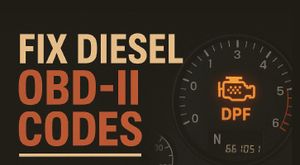Ten Things You Should Know About Hydraulic Fluids
By on Jan 23 2025
When it comes to choosing a hydraulic fluid, there are many different aspects to consider. Here we provide some recommendations on efficient, economic lubrication, and hydraulics that take performance to the next level:
-
THE RIGHT HYDRAULIC OIL REDUCES ENERGY LOSS

Choosing the correct viscosity reduces resistance, improves efficiency, and lowers costs. Many select high-viscosity oil out of habit, but a lower-viscosity option can enhance lubrication and save money.
-
COLD TEMPERATURES REQUIRE SPECIAL CONSIDERATION
Using the right hydraulic oil can eliminate the need for energy-consuming heaters and ensure smooth cold starts. High-viscosity oils can cause pump damage in cold conditions, while lower-viscosity alternatives help maintain performance and system longevity.
-
CLEANLINESS PREVENTS OPERATIONAL DISRUPTIONS
Dirt and contamination can lead to system failures. Using ester-based oils helps prevent varnish buildup, while proper filtration and careful handling reduce the risk of contamination.
-
WATER CONTAMINATION CAN BE DEVASTATING
Even small amounts of water can degrade hydraulic oil. Keeping the water content below 200 ppm with desiccant breathers and filtration prevents condensation and maintains oil performance.

-
ENGINE OIL AND DEGREASERS DAMAGE HYDRAULIC FLUID
A few drops of engine oil or residual degreasers can severely impact hydraulic oil's properties. Always use separate refill containers and rinse off degreased parts to prevent contamination.
-
TEMPERATURE CONTROL EXTENDS OIL LIFE
Overheating shortens oil lifespan. A properly maintained hydraulic oil working at 40°C can last up to 20 years, but its life is halved for every 10°C increase. Regulating cooling and keeping the system clean preserves performance.
-
BIODEGRADABLE HYDRAULIC OILS OFFER ADVANTAGES
Beyond reducing environmental impact, many biodegradable options provide superior lubrication and longevity compared to traditional mineral oils.
-
H1 OILS ARE REQUIRED FOR FOOD PROCESSING
In industries handling food, contamination is a critical issue. NSF H1-approved hydraulic oils are safe for incidental food contact, ensuring compliance with strict safety standards.

-
THE DIESEL EFFECT CAN RUIN HYDRAULIC OIL
Low-pressure conditions can cause micro-combustions, forming harmful nitrogen oxides. Prevent this by ensuring the correct oil viscosity, properly sizing the pump suction pipe, and maintaining adequate pressure.
-
PRESSURE DROPS SHOULD BE AVOIDED
Large drops in pressure generate excess heat, degrading oil faster. Fitting the system with pressure control valves prevents overheating and extends oil life.
Find the perfect hydraulic fluid for your equipment at Petroleum Service Company!
Not sure which hydraulic fluid is right for you? Use the Fuchs Oil Finder Tool below to identify the best option for your machinery.






